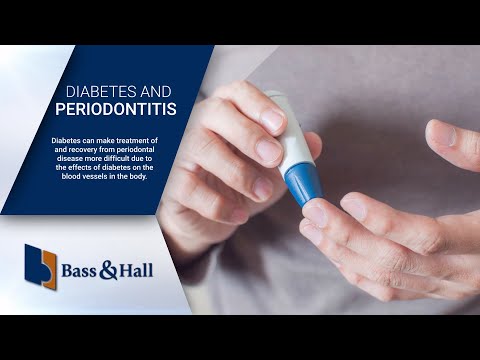Periodontal Disease in Diabetics: Special Care Required
Hey there, did you know that managing your diabetes goes beyond just monitoring your blood sugar levels? When it comes to your oral health, there’s an important connection that you shouldn’t overlook.
That’s right, we’re talking about periodontal disease. As a diabetic, you’re at a higher risk of developing this condition, but don’t worry, there’s hope.
In this discussion, we’re going to explore why special care is required for diabetics when it comes to periodontal disease. So, buckle up and get ready to discover the crucial link between diabetes and your oral health.
Understanding the Link: Diabetes and Periodontal Disease
Understanding the link between diabetes and periodontal disease is crucial for managing both conditions effectively.
When you have diabetes, your body has difficulty regulating blood sugar levels. This can lead to high blood sugar levels, which can weaken your immune system and make it harder for your body to fight off infections, including gum infections.
Periodontal disease, also known as gum disease, is a chronic inflammatory condition that affects the gums and supporting structures of the teeth. It’s caused by bacteria in dental plaque, which can build up if not properly removed through regular brushing and flossing.
When you have diabetes, your high blood sugar levels can create an ideal environment for bacteria to thrive, increasing your risk of developing gum disease. Conversely, having gum disease can also make it harder to control your blood sugar levels, making diabetes management more challenging.
Therefore, it’s essential to maintain good oral hygiene habits, visit your dentist regularly, and keep your blood sugar levels under control to prevent and manage both diabetes and periodontal disease effectively.
Increased Risk Factors for Diabetics
Diabetics face an increased risk of developing complications related to periodontal disease. This is because diabetes affects the body’s ability to control blood sugar levels, which can lead to a weakened immune system and impaired healing processes. When it comes to periodontal disease, diabetics are more susceptible to developing severe gum infections, tooth loss, and other oral health problems.
One of the main risk factors for diabetics is poor blood sugar control. When blood sugar levels are consistently high, it provides an ideal environment for bacteria to thrive in the mouth, leading to the development and progression of periodontal disease. Additionally, diabetics who smoke are at an even higher risk as smoking further weakens the immune system and impairs blood flow, making it harder for the body to fight off infections and heal damaged tissues.
Furthermore, diabetics who’ve been living with the condition for a long time are more likely to develop periodontal disease. This is because diabetes can gradually damage blood vessels, nerves, and other tissues in the body, including the gums and jawbone. As a result, the gums become more susceptible to infection and the jawbone may lose its ability to support the teeth properly.
Importance of Proper Oral Hygiene for Diabetics
Why is proper oral hygiene crucial for individuals with diabetes?
Maintaining good oral hygiene is essential for everyone, but it becomes even more crucial for individuals with diabetes. Diabetes affects your body’s ability to control blood sugar levels, making you more susceptible to oral health problems. Poor oral hygiene can lead to gum disease, which can further complicate diabetes management.
When you have diabetes, high blood sugar levels can cause dry mouth, which reduces saliva production. Saliva helps to wash away food particles and bacteria from your mouth, preventing plaque buildup. Without adequate saliva, plaque can accumulate on your teeth and gums, increasing the risk of tooth decay and gum disease.
Gum disease, also known as periodontal disease, is a serious condition that affects the tissues surrounding your teeth. It can cause inflammation, bleeding gums, bad breath, and even tooth loss if left untreated. Moreover, research suggests that gum disease may make it more challenging to control blood sugar levels, creating a vicious cycle that can negatively impact your overall health.
To maintain proper oral hygiene, make sure to brush your teeth at least twice a day with a soft-bristled toothbrush and fluoride toothpaste. Floss daily to remove plaque and debris from between your teeth, and visit your dentist regularly for professional cleanings and check-ups. By taking care of your oral health, you can help manage your diabetes and improve your overall well-being.
Special Considerations for Dental Treatments
Maintaining proper oral hygiene is essential for individuals with diabetes. When it comes to dental treatments, there are some special considerations to keep in mind.
Firstly, it’s crucial to inform your dentist about your diabetes diagnosis and provide them with relevant medical information. This will help them tailor the treatment plan specifically for you, taking into account any potential complications or interactions with your diabetes medication.
Secondly, it’s important to schedule dental appointments strategically. For example, if you take insulin, it would be best to schedule your dental treatment after a meal or adjust your insulin dosage accordingly to prevent any hypoglycemic episodes during or after the procedure.
During dental treatments, it’s vital to closely monitor your blood sugar levels. The stress of the procedure can potentially affect your blood sugar, so it’s recommended to measure your levels before, during, and after the treatment. If there are any concerns about your blood sugar levels, inform your dentist immediately.
Additionally, maintaining good oral hygiene at home is crucial. Regular brushing, flossing, and rinsing with an antimicrobial mouthwash are essential to prevent gum diseases and complications associated with diabetes. Your dentist may recommend specific oral care products that are suitable for individuals with diabetes.
Preventive Measures and Management Strategies for Diabetic Patients
To effectively manage diabetes, you should implement preventive measures and adopt various management strategies.
Prevention is key in controlling periodontal disease in diabetic patients. This includes maintaining good oral hygiene habits such as brushing your teeth twice a day, flossing daily, and rinsing with an antiseptic mouthwash.
Regular dental check-ups are essential for early detection and treatment of any oral health issues. It’s also important to control your blood sugar levels through proper diet, exercise, and medication as prescribed by your healthcare provider.
Managing stress levels is crucial as stress can affect blood sugar control and increase the risk of periodontal disease. Avoid smoking or tobacco use as it can worsen the oral health complications associated with diabetes.
Additionally, a healthy lifestyle with a balanced diet and regular exercise can improve your overall health, including your oral health.
Frequently Asked Questions
Can Periodontal Disease in Diabetics Be Completely Cured?
Periodontal disease in diabetics can be managed and treated effectively with special care. While it may not be completely cured, there are various treatment options available to control the progression of the disease and improve oral health.
Regular dental check-ups, proper oral hygiene practices, and maintaining good blood sugar control are crucial in managing periodontal disease in diabetics. By following these recommendations, you can effectively reduce the risk and severity of periodontal disease and its impact on your overall health.
How Does Periodontal Disease Affect Blood Sugar Levels in Diabetics?
Periodontal disease can actually have an impact on your blood sugar levels if you have diabetes. When your gums are infected, it can cause inflammation in your body.
This inflammation can make it harder for your body to regulate blood sugar, leading to higher levels.
It’s important to take special care of your oral health to prevent periodontal disease and keep your blood sugar levels under control.
Are There Any Specific Medications That Can Help Manage Periodontal Disease in Diabetics?
There aren’t any specific medications that can help manage periodontal disease in diabetics. However, it’s important to follow a comprehensive treatment plan that includes regular dental check-ups, good oral hygiene practices, and controlling your blood sugar levels.
These steps can help prevent and manage periodontal disease in diabetics. Remember to consult with your dentist and healthcare provider for personalized advice and recommendations.
Taking care of your oral health is crucial to maintaining overall well-being as a diabetic.
Can Poor Oral Hygiene Lead to the Development of Diabetes in Individuals Who Are Not Diabetic?
Poor oral hygiene can lead to the development of diabetes in individuals who aren’t diabetic. When you neglect to take care of your teeth and gums, it can lead to the buildup of plaque and bacteria in your mouth. This can cause inflammation and infection, which can in turn affect your body’s ability to regulate blood sugar levels.
Maintaining good oral hygiene is important not only for your dental health but also for your overall well-being.
Are There Any Alternative Treatment Options for Periodontal Disease in Diabetics, Besides Traditional Dental Treatments?
Are there any alternative treatment options for periodontal disease in diabetics, besides traditional dental treatments?
Yes, there are. In addition to regular dental care, you can also explore options like laser therapy and antibiotic gels.
Laser therapy uses a focused beam of light to remove infected tissue and promote healing.
Antibiotic gels can be applied directly to the gums to kill bacteria.
These alternative treatments can help improve your oral health and manage periodontal disease in diabetics.
Conclusion
In conclusion, diabetics need to take special care of their oral health due to the increased risk of periodontal disease.
Maintaining proper oral hygiene is crucial in preventing complications and managing the disease.
Additionally, diabetics should consider the special considerations for dental treatments to ensure their overall well-being.
By following p hop over to this website reventive measures and management strategies, diabetic patients can effectively control periodontal disease and improve their overall oral health.

Welcome to my website! My name is Christopher Boake, and I am a dedicated and passionate dental hygienist with years of experience in the field. I am thrilled to share my knowledge and expertise with you through this platform, where I aim to provide valuable information on everyday dental care tips, restorative dental innovations, cosmetic smile enhancements, and periodontal treatment and maintenance.

